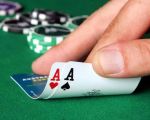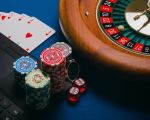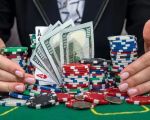How to Improve Your Poker Skills for Tournaments
Over the years, I’ve learned that poker is much more than just a game of luck—it’s a game of skill, strategy, and psychology. I can still recall the first time I entered a poker tournament, filled with excitement but equally anxious about competing against experienced players. Since that time, I’ve dedicated myself to improving my poker skills, particularly in tournament play. The difference between winning and losing in a poker tournament often comes down to preparation, mindset, and strategy. If you’re looking to up your game and increase your chances of success in poker tournaments, I’ve compiled the key tips and strategies that helped me along the way.
Understanding the Tournament Structure
The first lesson I learned is that tournament poker is very different from cash games. In a cash game, you can buy in for more chips whenever you’re out, and the game continues indefinitely. In a tournament, however, there are fixed starting chip stacks, and the blinds increase steadily, forcing action and pushing players to adapt. Understanding the structure of a poker tournament is crucial for success. The blind levels and the number of players left in the tournament can greatly affect your strategy. Early on, the blinds are small relative to your stack, and you can afford to play more conservatively. As the tournament progresses, however, the blinds increase, and you’ll need to adapt by playing more aggressively to stay competitive. One of my first big realizations was that patience in the early stages of the tournament is key—unless you have a premium hand, it’s better to conserve your chips and wait for a more favorable opportunity to strike.
1. Mastering the Basics of Poker Strategy
Before diving into tournament-specific strategies, it's important to master the basic fundamentals of poker. I spent many hours learning the hand rankings, understanding pot odds, and knowing when to bet, raise, call, or fold. These concepts may seem elementary, but they’re crucial when you’re under pressure in a tournament setting. Being able to quickly identify the strength of your hand in comparison to the community cards is essential. I also worked on understanding the concept of "position," which refers to where you are sitting relative to the dealer. Being "in position" allows you to see how other players act before making your decision, which can give you a strategic advantage. In tournament play, knowing when to be aggressive and when to slow down is crucial to avoid getting blinded out or losing your stack early on.
Reading Your Opponents
One of the most valuable skills I’ve developed over time is reading my opponents. In poker, it’s not just about the cards you’re holding, but how well you can interpret the actions of the players around you. In tournaments, everyone plays a little differently: some players are tight (playing few hands and only betting strong cards), while others are loose (playing many hands and betting often). By observing how my opponents play, I can adjust my strategy accordingly. For example, if I notice a player only raises with premium hands, I’ll avoid engaging them unless I have a very strong hand myself. On the other hand, if a player is bluffing often, I might decide to call them down with a wider range of hands. Watching body language, timing, and betting patterns can also provide crucial clues. This aspect of poker is more about psychology than math, and it has often given me the edge in tournament play.
2. Understanding Tournament Bankroll Management
Bankroll management is critical for any poker player, but especially so in tournaments where your entire stack can disappear in a single hand. I’ve had moments where I pushed all-in with a strong hand, only to get unlucky and lose everything. That’s a harsh reality of tournament poker, but it’s also an opportunity to learn. Managing your chips wisely during a tournament is one of the most important strategies I’ve learned. In the early stages of a tournament, I focus on preserving my stack by avoiding unnecessary risks and playing conservatively. As the tournament progresses, I shift to a more aggressive strategy when I’m in a favorable position, but I still avoid making wild, reckless bets. Being too conservative can result in being blinds out, while being too aggressive can lead to losing your stack early. The key is finding the right balance based on your current position in the tournament.
Adjusting to the Changing Dynamics
As the tournament progresses, the dynamics shift significantly. The field thins out, the blinds increase, and the level of competition intensifies. I’ve found that adapting to these changes is crucial to my success. Early on, you can afford to play more conservatively, but as the tournament moves to the middle and late stages, I’ve had to adjust by becoming more aggressive. This might mean stealing blinds from shorter stacks or making larger bets to apply pressure on opponents. The best players are those who adjust their strategy based on their stack size, table dynamics, and the stage of the tournament. I’ve also learned to pay attention to the “bubble”—the stage when only a few players remain before the payout begins. During this time, some players tighten up their play to ensure they make it into the money, which creates opportunities for well-timed bluffs and aggressive plays.
3. The Importance of Mental Toughness
Mental toughness has been one of the most significant factors in my success at poker tournaments. The pressure of tournament play can be overwhelming, and it’s easy to become frustrated or anxious after losing a big pot or being on the wrong end of a bad beat. I’ve found that the ability to stay calm, focused, and patient is what separates great players from good players. When I experience a setback, I take a few moments to refocus and remind myself of the long-term goal. The mental aspect of poker is often underestimated, but the best players are those who can remain level-headed and make rational decisions, even in the most high-pressure situations. In fact, some of my most memorable tournament victories came when I was able to stay composed and make disciplined plays during critical moments.
Developing Patience
Patience is another essential quality that I’ve had to cultivate in tournament play. Early in my poker journey, I would get impatient and try to force action, especially when I had a smaller stack. I’ve since learned that patience pays off. Rather than forcing the action, I’ve become more comfortable waiting for good spots, even if it means sitting out for a while. In large tournaments, it’s often the player who waits for the right opportunities—rather than the player who’s constantly making moves—who ends up with the big stack in the later stages. The ability to fold when necessary and wait for the right hand is a skill that can’t be overstated.
4. Practice, Practice, Practice
Like any skill, poker requires practice. After every tournament, I take the time to reflect on my play—what worked, what didn’t, and how I can improve next time. I also play in smaller, lower-stakes games to hone my skills and practice new strategies without the pressure of a big tournament. Additionally, I’ve started watching videos and reading books about poker strategy to continue learning. The poker community is full of resources—online forums, training sites, and expert blogs—where you can get advice from experienced players. By practicing and learning continuously, I’ve been able to improve my poker skills over time and consistently perform better in tournaments.
Conclusion: Continuous Improvement is Key
Improving your poker skills for tournaments isn’t something that happens overnight. It takes time, practice, and a willingness to learn and adapt. By mastering the fundamentals, understanding the tournament structure, managing your bankroll, and maintaining mental toughness, you can significantly increase your chances of success. Poker is a dynamic game that rewards those who are constantly learning, adjusting, and refining their strategies. If you’re serious about improving your tournament play, I highly encourage you to take the time to study, practice, and remain disciplined. Poker is a marathon, not a sprint, and the more effort you put in, the better your results will be in the long run. To keep improving your game, consider checking out more advanced training materials and strategies to continue mastering the art of poker tournaments.








